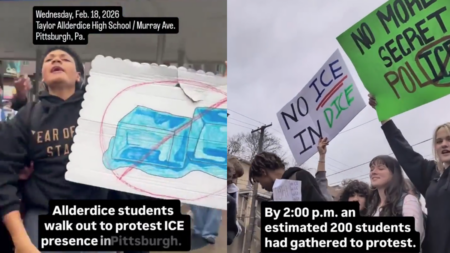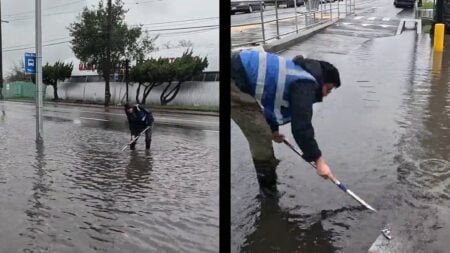Since President Donald Trump was sworn into office earlier this year, undocumented citizens have had a lot to fear. If it isn’t police taking a greater stance in public areas, it’s ICE kidnapping students who they believe to be undocumented just because. Well, one Tennessee woman decided to stay in her seat after a committee meeting by the Tennessee General Assembly had concluded. She did so in protest of a bill that was passed before her eyes, allowing public schools to deny enrollment or charge tuition to undocumented students.
Eighty-year-old Lynne McFarland refused to stand up after the meeting had concluded, causing police to approach her. They had tried to get her to stand up willingly, explaining that there would be charges involved otherwise. After a while, officers carried McFarland out of the room, put her in a police car, and took her into custody. As a result of her behavior as well as for resisting a search of her body, she was charged with two misdemeanors.
Senator Jeff Yarbo stated that this bill will require additional work and tools to verify every student’s birth certificate and immigration status. Additional work and tools that public schools definitely do not have funding to cover.
“If you talk to districts and think about what it means to convert all 1,800 public schools into institutions that review the citizenship status of every student every year, that is going to be massively expensive. There is just a moral cost to this.”
Legislators argued profusely about the costs that would arise as a result of this decision. However, Republicans continue to ensure that Tennessee will be saving money despite there being no physical evidence to prove this. I am unsure if the cost of allowing an undocumented student to attend public school outweighs the cost of restricting them, but we are about to find out soon enough.
This is not the first time in so many days that public schools around the United States have been attacked by their own government. In Florida, students and teachers are being urged to consider an online education to combat the fact that there are not enough teachers. The same announcement that outlined online education also explained how funding would be cut for programs, including AP, IB, Dual Enrollment, and others. Parents and teachers all over the state have been calling their senators and state representatives to try and have them reconsider these decisions.








